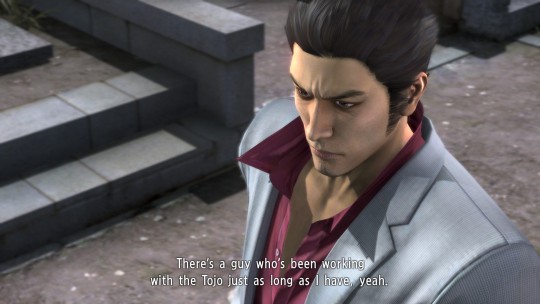#emotion recognition
Explore tagged Tumblr posts
Text
Emotion Recognition Resources
I have non-verbal learning disorder (NLD or NVLD), also called developmental visual spatial disorder (DVSD), and have had difficulty recognizing my own emotions. I am better at recognizing them now, so it is easier to take care of them.
I have found it helpful to use feelings lists or to sort through cards with feelings words on them. I have also found a book called The Emotions Thesaurus to be helpful. Here is the link: https://writershelpingwriters.net/the-emotion-thesaurus-a-writers-guide-to-character-expression/ Also, here is a free app called “Animi” that advertises itself for people with alexithymia, and looks like it could be helpful for anyone. Alexithymia is a medical term for difficulty recognizing one's own emotions, and gave examples of what it can be like in a previous post called "What is Alexithymia?" Here is the link: https://www.animiapp.com/
#autism#non-verbal learning disorder#non-verbal learning disability#alexithymia#emotion recognition#neurodiversity#neurodivergence#emotions
3 notes
·
View notes
Text
#Emotion Recognition And Sentiment Analysis Software Market#Emotion Recognition#Sentiment Analysis Software
0 notes
Text
Transform Customer Service with Deep Brain AI Avatars!
Welcome to our deep dive into DeepBrain AI, a groundbreaking player in the generative AI landscape. In a world where artificial intelligence is rapidly evolving, DeepBrain AI stands out by harnessing the power of advanced algorithms to create realistic and engaging content. This innovative tool is not just a technological marvel; it’s reshaping how we think about content creation, communication, and even personal branding.
As tech enthusiasts, understanding tools like DeepBrain AI is crucial for both personal and professional growth. Whether you're a content creator, marketer, or simply someone curious about the future of technology, grasping the capabilities of AI can open up new avenues for creativity and efficiency.
In this video, we’ll explore how DeepBrain AI works, its applications across various industries, and why it’s essential to stay informed about such advancements. By the end, you’ll not only appreciate the significance of DeepBrain AI but also feel empowered to leverage its potential in your own projects. So, let’s embark on this exciting journey into the world of generative AI and discover how it can transform our lives!
Target Audience:
The primary audience for DeepBrain AI encompasses a diverse range of individuals and organizations, including content creators, marketers, and businesses eager to harness the power of artificial intelligence. Content creators, such as bloggers, video producers, and social media influencers, can utilize DeepBrain AI to streamline their workflow, generate engaging content, and enhance their creative output.
Marketers, on the other hand, can leverage this tool to craft personalized campaigns, analyze consumer behavior, and optimize their strategies for better engagement. Businesses of all sizes are also part of this audience, as they seek innovative solutions to improve efficiency, reduce costs, and stay competitive in a rapidly changing market.
Within this audience, there are varying levels of expertise, ranging from beginners who are just starting to explore AI tools to advanced users who are already familiar with generative AI technologies. DeepBrain AI caters to all these segments by offering user-friendly interfaces and robust features that can be tailored to different skill levels. For beginners, it provides an accessible entry point into AI, while advanced users can take advantage of its sophisticated capabilities to push the boundaries of their projects. Ultimately, DeepBrain AI empowers each segment to unlock new possibilities and drive success in their respective fields.
List of Features:
DeepBrain AI boasts a range of impactful features that set it apart in the generative AI landscape. First and foremost is its advanced natural language processing (NLP) capability, which allows the tool to understand and generate human-like text. This feature can be utilized in real-world applications such as chatbots for customer service, where it can provide instant responses to inquiries, enhancing user experience.
Next is its robust content generation capability, enabling users to create articles, social media posts, and marketing copy with minimal effort. For instance, a marketer can input key themes and receive a fully developed campaign draft in seconds, saving time and resources.
Another standout feature is its ability to analyze and summarize large volumes of data, making it invaluable for businesses looking to extract insights from reports or customer feedback. This unique selling point differentiates DeepBrain AI from other generative AI products, as it combines content creation with data analysis in a seamless manner.
Additionally, DeepBrain AI offers customizable templates tailored to various industries, allowing users to maintain brand consistency while leveraging AI-generated content. These features collectively empower users to enhance productivity, creativity, and decision-making in their professional endeavors.
Conclusion:
In summary, DeepBrain AI represents a significant advancement in the generative AI landscape, offering powerful features that cater to a diverse audience, including content creators, marketers, and businesses. Its advanced natural language processing and content generation capabilities enable users to produce high-quality material efficiently, while its data analysis features provide valuable insights that can drive strategic decisions.
Key takeaways from this video include the importance of understanding how DeepBrain AI can enhance productivity and creativity, regardless of your level of expertise. Whether you’re just starting out or are an advanced user, this tool has something to offer that can elevate your projects and initiatives.
We hope you found this exploration of DeepBrain AI informative and engaging. If you enjoyed the content, please consider subscribing to our channel, liking this video, and sharing it with others who might benefit from learning about AI tools. Don’t forget to check out our related content for more insights into the world of artificial intelligence and how it can transform your personal and professional life. Thank you for watching, and we look forward to seeing you in our next video!
#DeepBrain AI#generative AI#hyperrealistic avatars#virtual humans#AI platform#deep learning techniques#lifelike digital representations#real-time interaction#customer service AI#virtual assistance#entertainment technology#education AI#personalized interactions#speech synthesis#natural language processing#emotion recognition#user experience enhancement#content creation tools#innovative AI solutions#digital avatars#AI technology#virtual interactions#advanced AI features#business applications#digital representation#interactive avatars#AI-driven solutions#virtual human technology#engaging content#AI in education
1 note
·
View note
Text
Bossware is unfair (in the legal sense, too)

You can get into a lot of trouble by assuming that rich people know what they're doing. For example, might assume that ad-tech works – bypassing peoples' critical faculties, reaching inside their minds and brainwashing them with Big Data insights, because if that's not what's happening, then why would rich people pour billions into those ads?
https://pluralistic.net/2020/12/06/surveillance-tulip-bulbs/#adtech-bubble
You might assume that private equity looters make their investors rich, because otherwise, why would rich people hand over trillions for them to play with?
https://thenextrecession.wordpress.com/2024/11/19/private-equity-vampire-capital/
The truth is, rich people are suckers like the rest of us. If anything, succeeding once or twice makes you an even bigger mark, with a sense of your own infallibility that inflates to fill the bubble your yes-men seal you inside of.
Rich people fall for scams just like you and me. Anyone can be a mark. I was:
https://pluralistic.net/2024/02/05/cyber-dunning-kruger/#swiss-cheese-security
But though rich people can fall for scams the same way you and I do, the way those scams play out is very different when the marks are wealthy. As Keynes had it, "The market can remain irrational longer than you can remain solvent." When the marks are rich (or worse, super-rich), they can be played for much longer before they go bust, creating the appearance of solidity.
Noted Keynesian John Kenneth Galbraith had his own thoughts on this. Galbraith coined the term "bezzle" to describe "the magic interval when a confidence trickster knows he has the money he has appropriated but the victim does not yet understand that he has lost it." In that magic interval, everyone feels better off: the mark thinks he's up, and the con artist knows he's up.
Rich marks have looong bezzles. Empirically incorrect ideas grounded in the most outrageous superstition and junk science can take over whole sections of your life, simply because a rich person – or rich people – are convinced that they're good for you.
Take "scientific management." In the early 20th century, the con artist Frederick Taylor convinced rich industrialists that he could increase their workers' productivity through a kind of caliper-and-stopwatch driven choreographry:
https://pluralistic.net/2022/08/21/great-taylors-ghost/#solidarity-or-bust
Taylor and his army of labcoated sadists perched at the elbows of factory workers (whom Taylor referred to as "stupid," "mentally sluggish," and as "an ox") and scripted their motions to a fare-the-well, transforming their work into a kind of kabuki of obedience. They weren't more efficient, but they looked smart, like obedient robots, and this made their bosses happy. The bosses shelled out fortunes for Taylor's services, even though the workers who followed his prescriptions were less efficient and generated fewer profits. Bosses were so dazzled by the spectacle of a factory floor of crisply moving people interfacing with crisply working machines that they failed to understand that they were losing money on the whole business.
To the extent they noticed that their revenues were declining after implementing Taylorism, they assumed that this was because they needed more scientific management. Taylor had a sweet con: the worse his advice performed, the more reasons their were to pay him for more advice.
Taylorism is a perfect con to run on the wealthy and powerful. It feeds into their prejudice and mistrust of their workers, and into their misplaced confidence in their own ability to understand their workers' jobs better than their workers do. There's always a long dollar to be made playing the "scientific management" con.
Today, there's an app for that. "Bossware" is a class of technology that monitors and disciplines workers, and it was supercharged by the pandemic and the rise of work-from-home. Combine bossware with work-from-home and your boss gets to control your life even when in your own place – "work from home" becomes "live at work":
https://pluralistic.net/2021/02/24/gwb-rumsfeld-monsters/#bossware
Gig workers are at the white-hot center of bossware. Gig work promises "be your own boss," but bossware puts a Taylorist caliper wielder into your phone, monitoring and disciplining you as you drive your wn car around delivering parcels or picking up passengers.
In automation terms, a worker hitched to an app this way is a "reverse centaur." Automation theorists call a human augmented by a machine a "centaur" – a human head supported by a machine's tireless and strong body. A "reverse centaur" is a machine augmented by a human – like the Amazon delivery driver whose app goads them to make inhuman delivery quotas while punishing them for looking in the "wrong" direction or even singing along with the radio:
https://pluralistic.net/2024/08/02/despotism-on-demand/#virtual-whips
Bossware pre-dates the current AI bubble, but AI mania has supercharged it. AI pumpers insist that AI can do things it positively cannot do – rolling out an "autonomous robot" that turns out to be a guy in a robot suit, say – and rich people are groomed to buy the services of "AI-powered" bossware:
https://pluralistic.net/2024/01/29/pay-no-attention/#to-the-little-man-behind-the-curtain
For an AI scammer like Elon Musk or Sam Altman, the fact that an AI can't do your job is irrelevant. From a business perspective, the only thing that matters is whether a salesperson can convince your boss that an AI can do your job – whether or not that's true:
https://pluralistic.net/2024/07/25/accountability-sinks/#work-harder-not-smarter
The fact that AI can't do your job, but that your boss can be convinced to fire you and replace you with the AI that can't do your job, is the central fact of the 21st century labor market. AI has created a world of "algorithmic management" where humans are demoted to reverse centaurs, monitored and bossed about by an app.
The techbro's overwhelming conceit is that nothing is a crime, so long as you do it with an app. Just as fintech is designed to be a bank that's exempt from banking regulations, the gig economy is meant to be a workplace that's exempt from labor law. But this wheeze is transparent, and easily pierced by enforcers, so long as those enforcers want to do their jobs. One such enforcer is Alvaro Bedoya, an FTC commissioner with a keen interest in antitrust's relationship to labor protection.
Bedoya understands that antitrust has a checkered history when it comes to labor. As he's written, the history of antitrust is a series of incidents in which Congress revised the law to make it clear that forming a union was not the same thing as forming a cartel, only to be ignored by boss-friendly judges:
https://pluralistic.net/2023/04/14/aiming-at-dollars/#not-men
Bedoya is no mere historian. He's an FTC Commissioner, one of the most powerful regulators in the world, and he's profoundly interested in using that power to help workers, especially gig workers, whose misery starts with systemic, wide-scale misclassification as contractors:
https://pluralistic.net/2024/02/02/upward-redistribution/
In a new speech to NYU's Wagner School of Public Service, Bedoya argues that the FTC's existing authority allows it to crack down on algorithmic management – that is, algorithmic management is illegal, even if you break the law with an app:
https://www.ftc.gov/system/files/ftc_gov/pdf/bedoya-remarks-unfairness-in-workplace-surveillance-and-automated-management.pdf
Bedoya starts with a delightful analogy to The Hawtch-Hawtch, a mythical town from a Dr Seuss poem. The Hawtch-Hawtch economy is based on beekeeping, and the Hawtchers develop an overwhelming obsession with their bee's laziness, and determine to wring more work (and more honey) out of him. So they appoint a "bee-watcher." But the bee doesn't produce any more honey, which leads the Hawtchers to suspect their bee-watcher might be sleeping on the job, so they hire a bee-watcher-watcher. When that doesn't work, they hire a bee-watcher-watcher-watcher, and so on and on.
For gig workers, it's bee-watchers all the way down. Call center workers are subjected to "AI" video monitoring, and "AI" voice monitoring that purports to measure their empathy. Another AI times their calls. Two more AIs analyze the "sentiment" of the calls and the success of workers in meeting arbitrary metrics. On average, a call-center worker is subjected to five forms of bossware, which stand at their shoulders, marking them down and brooking no debate.
For example, when an experienced call center operator fielded a call from a customer with a flooded house who wanted to know why no one from her boss's repair plan system had come out to address the flooding, the operator was punished by the AI for failing to try to sell the customer a repair plan. There was no way for the operator to protest that the customer had a repair plan already, and had called to complain about it.
Workers report being sickened by this kind of surveillance, literally – stressed to the point of nausea and insomnia. Ironically, one of the most pervasive sources of automation-driven sickness are the "AI wellness" apps that bosses are sold by AI hucksters:
https://pluralistic.net/2024/03/15/wellness-taylorism/#sick-of-spying
The FTC has broad authority to block "unfair trade practices," and Bedoya builds the case that this is an unfair trade practice. Proving an unfair trade practice is a three-part test: a practice is unfair if it causes "substantial injury," can't be "reasonably avoided," and isn't outweighed by a "countervailing benefit." In his speech, Bedoya makes the case that algorithmic management satisfies all three steps and is thus illegal.
On the question of "substantial injury," Bedoya describes the workday of warehouse workers working for ecommerce sites. He describes one worker who is monitored by an AI that requires him to pick and drop an object off a moving belt every 10 seconds, for ten hours per day. The worker's performance is tracked by a leaderboard, and supervisors punish and scold workers who don't make quota, and the algorithm auto-fires if you fail to meet it.
Under those conditions, it was only a matter of time until the worker experienced injuries to two of his discs and was permanently disabled, with the company being found 100% responsible for this injury. OSHA found a "direct connection" between the algorithm and the injury. No wonder warehouses sport vending machines that sell painkillers rather than sodas. It's clear that algorithmic management leads to "substantial injury."
What about "reasonably avoidable?" Can workers avoid the harms of algorithmic management? Bedoya describes the experience of NYC rideshare drivers who attended a round-table with him. The drivers describe logging tens of thousands of successful rides for the apps they work for, on promise of "being their own boss." But then the apps start randomly suspending them, telling them they aren't eligible to book a ride for hours at a time, sending them across town to serve an underserved area and still suspending them. Drivers who stop for coffee or a pee are locked out of the apps for hours as punishment, and so drive 12-hour shifts without a single break, in hopes of pleasing the inscrutable, high-handed app.
All this, as drivers' pay is falling and their credit card debts are mounting. No one will explain to drivers how their pay is determined, though the legal scholar Veena Dubal's work on "algorithmic wage discrimination" reveals that rideshare apps temporarily increase the pay of drivers who refuse rides, only to lower it again once they're back behind the wheel:
https://pluralistic.net/2023/04/12/algorithmic-wage-discrimination/#fishers-of-men
This is like the pit boss who gives a losing gambler some freebies to lure them back to the table, over and over, until they're broke. No wonder they call this a "casino mechanic." There's only two major rideshare apps, and they both use the same high-handed tactics. For Bedoya, this satisfies the second test for an "unfair practice" – it can't be reasonably avoided. If you drive rideshare, you're trapped by the harmful conduct.
The final prong of the "unfair practice" test is whether the conduct has "countervailing value" that makes up for this harm.
To address this, Bedoya goes back to the call center, where operators' performance is assessed by "Speech Emotion Recognition" algorithms, a psuedoscientific hoax that purports to be able to determine your emotions from your voice. These SERs don't work – for example, they might interpret a customer's laughter as anger. But they fail differently for different kinds of workers: workers with accents – from the American south, or the Philippines – attract more disapprobation from the AI. Half of all call center workers are monitored by SERs, and a quarter of workers have SERs scoring them "constantly."
Bossware AIs also produce transcripts of these workers' calls, but workers with accents find them "riddled with errors." These are consequential errors, since their bosses assess their performance based on the transcripts, and yet another AI produces automated work scores based on them.
In other words, algorithmic management is a procession of bee-watchers, bee-watcher-watchers, and bee-watcher-watcher-watchers, stretching to infinity. It's junk science. It's not producing better call center workers. It's producing arbitrary punishments, often against the best workers in the call center.
There is no "countervailing benefit" to offset the unavoidable substantial injury of life under algorithmic management. In other words, algorithmic management fails all three prongs of the "unfair practice" test, and it's illegal.
What should we do about it? Bedoya builds the case for the FTC acting on workers' behalf under its "unfair practice" authority, but he also points out that the lack of worker privacy is at the root of this hellscape of algorithmic management.
He's right. The last major update Congress made to US privacy law was in 1988, when they banned video-store clerks from telling the newspapers which VHS cassettes you rented. The US is long overdue for a new privacy regime, and workers under algorithmic management are part of a broad coalition that's closer than ever to making that happen:
https://pluralistic.net/2023/12/06/privacy-first/#but-not-just-privacy
Workers should have the right to know which of their data is being collected, who it's being shared by, and how it's being used. We all should have that right. That's what the actors' strike was partly motivated by: actors who were being ordered to wear mocap suits to produce data that could be used to produce a digital double of them, "training their replacement," but the replacement was a deepfake.
With a Trump administration on the horizon, the future of the FTC is in doubt. But the coalition for a new privacy law includes many of Trumpland's most powerful blocs – like Jan 6 rioters whose location was swept up by Google and handed over to the FBI. A strong privacy law would protect their Fourth Amendment rights – but also the rights of BLM protesters who experienced this far more often, and with far worse consequences, than the insurrectionists.
The "we do it with an app, so it's not illegal" ruse is wearing thinner by the day. When you have a boss for an app, your real boss gets an accountability sink, a convenient scapegoat that can be blamed for your misery.
The fact that this makes you worse at your job, that it loses your boss money, is no guarantee that you will be spared. Rich people make great marks, and they can remain irrational longer than you can remain solvent. Markets won't solve this one – but worker power can.

Image: Cryteria (modified) https://commons.wikimedia.org/wiki/File:HAL9000.svg
CC BY 3.0 https://creativecommons.org/licenses/by/3.0/deed.en
#pluralistic#alvaro bedoya#ftc#workers#algorithmic management#veena dubal#bossware#taylorism#neotaylorism#snake oil#dr seuss#ai#sentiment analysis#digital phrenology#speech emotion recognition#shitty technology adoption curve
2K notes
·
View notes
Text




Did I mean so little to you? You were never supposed to mean anything at all.
SMART CHISANUPONG AS JIN
Top Form (2025) | 1.09

#top form#top form the series#smart chisanupong#thai bl#thai drama#thai series#thai ql#bl series#asianlgbtdrama#mambo.gifs#my gifs#usertorti#esmetracks#userrlana#userspring#userrain#userjup#i needed to give smart the biggest hug after this scene#i can only imagine how intensive it was to prep for this q#the emotion the vulnerability the loss#i really hope that this series gets its recognition it deserves once it concludes#and more opportunities for smartboom
234 notes
·
View notes
Text

Here comes a very special mare Her name was "Ode". She was like mother nature incarnated. Visiting her was special. She had an incredibly soothing, calming aura to her. Petting her made you feel grounded, as you stood next to her incredibly massive body and her enormous hooves. And she was as patient and kind as ever to every soul who came to spend her a visit.
We loved her dearly. But the farmer who owned her didn't take care of her well. After selling his other horses, Ode was standing alone on a paddock for over half a year. No one brought her into the stable, no one gave her any shelter and no one took care of her hooves. We tried everything to get Ode away from her owner, but in the end, the only solution was money. After we collected enough from friends and family and invested some of our savings, we bought her free and found a new loving home for her.
Ode lived another beautiful year owned by a loving family on a big farm with lots of other horses and instantly became the new leader of the herd. We stayed in contact with the family and heard how well Ode was doing, how much she blossomed in her new home. But one winter morning, she refused to get up. Through the neglect of her former owner, she had developed arthrosis in her legs and she was unable to stand without pain. Her family decided to release her. That was a couple of years ago. I still miss her dearly. She has left a lasting impression on me like no other horse ever has and I wouldn't be surprised if she was a Goddess of nature in disguise. Despite her life being cut short, I am glad we were able to give her one last year full of love and joy.
Cheers to you, Ode, on whichever plain you're now running free💖

#horse#horses#artists on tumblr#digital art#bella sara#art#illustration#This got WAY more personal than I wanted it to be but I feel like Ode deserves the recognition#Her story should be told to understand why I drew this illustration#I still get emotional over this horse after all these years jesus christ#She was something VERY special#herds of epona
603 notes
·
View notes
Text

#scribbles#isat siffrin#isat loop#in stars and time#isat fanart#i need to find what layer the mira doodle page is on i HAD ONE#they are Sooo silly. loop they could never make me not feel horrible shrimp emotions about you#self recognition through the other (fearful) for both of them. take my hand let’s all walk into the sea
55 notes
·
View notes
Text
community that has only seen themselves represented in a small handful of romance stories that aren’t explicitly about their real-world oppression, watching a new show or movie where they are represented in a romantic story that isn’t explicitly about their real-world oppression: getting a lot of “that other show with a queer romance that isn’t explicitly about real-world homophobia” vibes from this
#ofmd#our flag means death#good omens#good omens 2#gentlebeard#blackbeard#aziracrow#txt#og#mine#listen i love pattern recognition as much as the next person but please. please.#the similarities between ed/stede and azi/crow are SURFACE LEVEL#the relationship dynamics are VERY DIFFERENT#one is opposite sides of a war and sworn enemies whose lives are dedicated to The Mission who accidentally fall in love#the other one is two incredibly lonely men who have never had a real friend meeting each other later in life and becoming instant besties#they’re not the same!!! AND THIS IS A GOOD THING!!!!!!!!!!#like do y’all really want all your queer romances to be the same goddamn dynamic over and over again?????#that’s stupid! you should want your diverse romances to be DIVERSE!!!!#go/ofmd both have fancy silly blond man paired with a goth who wears dark clothes#and they both had. very tragic end-of-season cliffhangers due to the blond man’s internalized emotional hangups#but stede/azi are very different characters. and it’s ed/crowley are also very different characters#and their romances! are very different from each other!!!!!#i GET why the comparisons are being made but man they’re getting annoying lol
518 notes
·
View notes
Text
What is Alexithymia?
Alexithymia (Uh-lex-uh-thigh-me-uh) is a medical term for difficulty recognizing and expressing one’s own emotions. It can be a part of various diagnoses such as non-verbal learning disorder.
For example, once, I took a test and wondered why my hand was shaking as a was writing the answers. I wondered if I had suddenly acquired a neurological disorder that causes tremors. Then I realized that my hand was shaking because I was nervous about the test. While many people experience moments when they do not know how they are feeling, most would recognize their own nervousness if it was strong enough to make their hand shake.
Another time, I noticed that for a few days, it was taking me longer than usual to eat my sandwich for lunch. It took cognitive effort to realize that it was taking me a while to eat lunch because I was losing my appetite, and to then realize that I was losing my appetite because I was anxious about a specific situation.
If these experiences seem familiar to you, you might want to work with someone who has experience helping people learn to recognize their emotions.
#alexithymia#emotion recognition#neurodivergence#non-verbal learning disability#non-verbal learning disorder
14 notes
·
View notes
Text
One thing I really want to see happen in Season 4...
Valdo Marx: Nice to see you again, Joseph!
Jaskier: *Heavy sigh* That's -
Yarpen: *Stepping in front of him protectively.* Julian Alfred Pankratz to you, you dying sounding beached whale! Only his friends call him Joseph!
Jaskier: Ah, actually, that's Jaskier.
Yarpen: *Dismissively.* Yeah, I KNOW.
Jaskier: *Getting all teary eyed.* I know you do.
#The Witcher#Jaskier#Yarpen Zigrin#Their friendship is legendary#Valdo Marx#Their rivalry is a legendary#Does Valdo know Jaskier is a honorary member of a fierce dwarven mercenary company yet?#No but seriously I kind of headcanon that the reason Yarpen is so pissed at continuously being reminded that Jaskier's named#Julian Alfred Pankratz#Is because he noticed that Geralt and even Yennefer were calling him “Jaskier”#While Jaskier introduced himself to Yarpen using his whole freaking name!#Jaskier just wanted to be respectful and polite#Yarpen took it as a desire to put some emotional distance between them and imply he hadn't earned the right to call him by his#Chosen / preferred named#And then despite all they went through together on that mountain and claiming to be a friend#Jaskier still continues to insist on introducing himself using his full bloody name!#Like what does a dwarf have to do to get some familiarity and recognition of kinship from that bloody bard?#But then Jaskier puts his life on the line to help Yarpen's men...#And Yarpen realizes that Jaskier cares enough to take an arrow to the back (or to the lute at least) to keep them safe..#He's not a warrior that revels in the rush of battle!#He's just a scared bard rushing headfirst into the fray just because he wants to help any injured dwarves#Even if that means potentially sacrificing himself...#So maybe human customs are weird...#Maybe Jaskier has been waiting for *HIM* to start calling him “Jaskier” and officially signal the start of a friendship...#Maybe that formal introduction wasn't a slight on Jaskier's part and that overgrown puppy of a bard has been waiting for Yarpen to finally#adopt him like an idiot!#And so Yarpen chooses to skip the formalities and go straight for “thank you JASKIER” to make it clear that he does consider him a friend..#My Posts#My thoughts#In tags form
253 notes
·
View notes
Text
#emotion ai#emotion recognition#job interview#interview tips#artificial intelligence#ai#ai image#technology#emotion ai software
0 notes
Text
if you’ll indulge me i want to wax poetic about adam scott for a minute
so i’ve been listening to adam scott and scott aukerman’s podcast where they cover different bands and one of the most interesting parts of the REM eps is when they share what they were doing in the 80s, 90s, etc. when each album came out
but aside from it being fun to hear what life was like for people in their 20s in 1990s LA, it is WILD to hear adam scott’s career journey and how long he was trying to break into acting before he ever got his first big roles.
like YEARS are passing between albums and he’s recalling doing all these little tv guest spots and tiny indie movies and on the most recent episode he talks about the first time he got fired and replaced on a tv pilot that got picked up 😅 and this was like NINE years into his career!!! the man could not get a break!!!
like i knew his career took a while to get off the ground but it really does give a whole new perspective on how long and hard he’s had to work and how much failure he’s faced before finding all the (well deserved) acclaim he’s finding
and i guess just really respect his dedication and find it super admirable??? like obviously there are a ton of people out there who also work hard and never make it but there’s just something i really respect about seeing someone be successful and it taking a LONG time for them to get there
#his new yorker profile is my favorite thing ever#and i love how he is finally getting the recognition he deserves!!!#anyways don’t mind me getting emotional about a 50 year old actor lmao#adam scott
29 notes
·
View notes
Text

@goromibestgirl YOU GET IT......... i think its also like. worth noting that majima is not only sacrificing his freedom for kiryu over and over again but also going out of his way to make sure kiryu doesnt feel indebted to him for it. by making it into a fight (which he is losing on purpose), by keeping up the cold and indifferent facade. he can plausibly deny his actual motivations, he can say "i didn't do it for you." and the reason kiryu asks majima to look after the tojo is because he assumes majima has just as vested an interest in its future as he does.





but what kiryu doesn't understand is that majima doesn't need persuading. majima is literally just humoring kiryu because he understands that logically, he should be putting up a fight. it's literally just because kiryu would feel bad if he just accepted to go back to the clan. (and he gets to fight kiryu as a treat.) but he would. he would do it in a heartbeat.
so the mad dog mask also helps his loved ones underestimate how much he cares about them. this gives majima the "freedom" to sacrifice himself for their sake, betray himself for their sake, because it prevents feelings of excessive gratitude that would cross over into feeling indebted to him. which. wow i wonder where he learned that lesson

this was the biggest lesson majima learned in yakuza 0 -- that people you respect and love for being "good" people are not in fact selfish, and they don't want you to sacrifice yourself for them. they'll feel bad about it. you can't do them any favors that way. now imagine the series if someone had made kiryu understand this. lol


not that understanding it has done majima any favors btw. he's just learned how to do it without them knowing, and that's how he continues to have meaning in his life
#the masks are vital#not for his own survival#but the survival and wellbeing of his loved ones#and thats the only thing majima has ever cared about#yapping#majeem#kiryu#theyre so fucked up#like the reason majima is always hiding his true motives is for the SAKE of the people he loves#but thats such a deranged position to take with the people you love#like. its beyond just being mature#its actively sheltering. and like. forget wanting/needing recognition for it. he actively avoids it#the level of 'not giving a fuck about yourself' needed to achieve these results. unfathomable to me#but its because its not just that. its because hes also running from his emotions#so its like. 'convenient' not to care about himself in this way#also. he is the emotionally sheltering counterpart to kiryu's physically sheltering one#guy who jumps in front of a bullet#wahghh
32 notes
·
View notes
Text
do u think when Marc meets little kids (all decked out in gear to support him 🥺) he thinks of his little kid self and how much love and devotion HE had. Turns the whole thing into something just as lovely and pure as he possibly can because he recognises how important stuff like that is. waaah.
#ok I’m putting this in the tags bc it’s decidedly NOT a rosquez post. On purpose#but do u think he thinks abt himself w his model vale bikes and ofc that whole thing changed bc of how their relationship changed#but do u think for a second it’s not even about that anymore it’s just like#that recognition of how dedicated u have to be to be a kid like that#and the whole thing takes on an even more pure/lovely vibe because of his own experiences#like to recognise someone who is the same as u#and to not turn it into something ugly but rather to make it even more beautiful BECAUSE u know the reality of the other side of it#this post does not detail the complexities of my thoughts on <- that whole thing btw.#but anyway I made myself emotional thinking abt it#ALSO disclaimer I don’t even mean mean that Marc thinks abt vale all the time etc etc#I just think. being a fan of the sport in that specific intense way was a very big part of certainly the public perception of MM so like.#in the sense of that feeling moreso than anything else idk#ANYWAY this is just silly yapping <3#for more annoying adjacent yapping u will have to see my twitter since I refuse to do this often#marc marquez#motogp
18 notes
·
View notes
Text






#persona 4#p4#persona 4 arena ultimax#p4au#hanamura yosuke#yosuke hanamura#satonaka chie#amagi yukiko#hello i have spoken recently about how yosuke functions as the team's morale backbone#even when hes not around chie and yukiko think of him when they're frustrated or worried#consciously or otherwise they know they can turn to yosuke to cheer them up or at least alleviate some of their anxieties#chie calls yosuke because she needs to rant - even though she complains about how unserious he is she knows he can be relied on to listen#yukiko calls yosuke because she thinks he'll know whats going on with their friend - she sees HIM as the connected person in the group#i think its part yukiko seeing yosuke as yu's substitute and also part just... a general recognition that he's the most on the ball#and even when he doesnt know the answer#yukiko still finds comfort in hearing him talk#however yosuke sees himself i think its nonetheless true that his friends love him and depend on him!!!#and i love that so much guys#yosuke team wrangler but also team emotional support and just all around good friend confirmed!!!!#he's good with his queue
224 notes
·
View notes